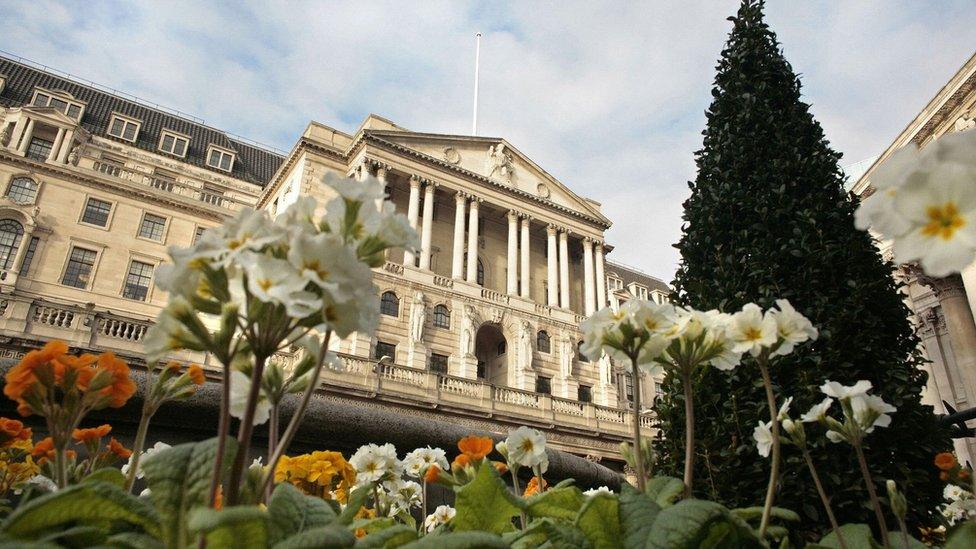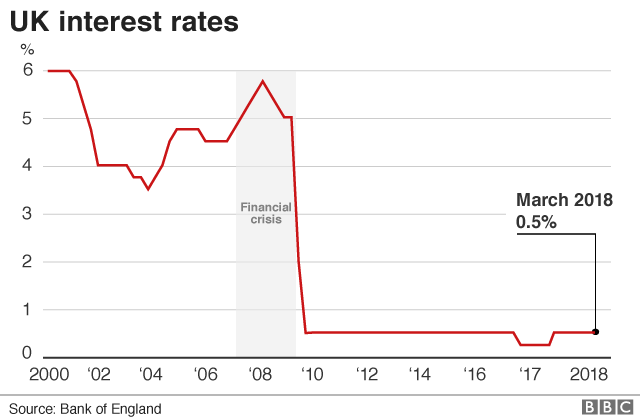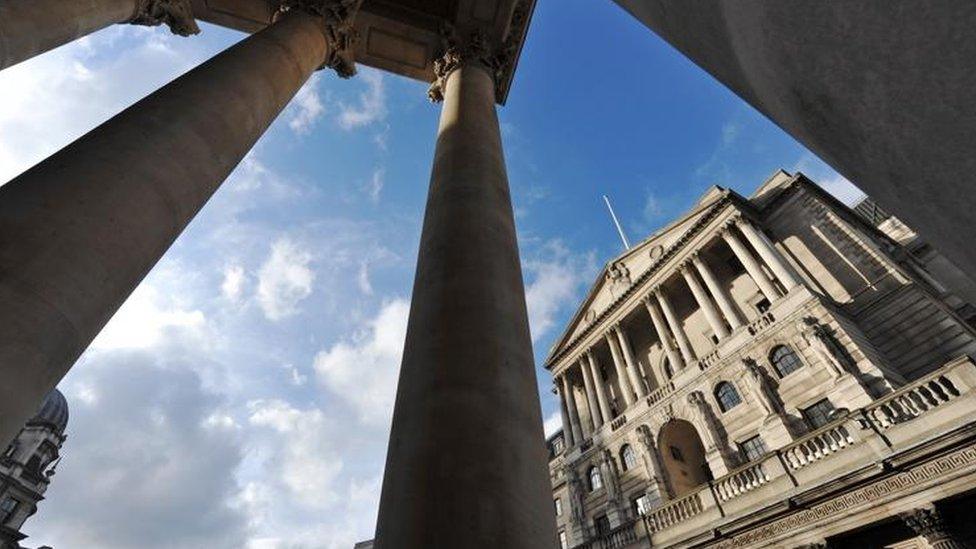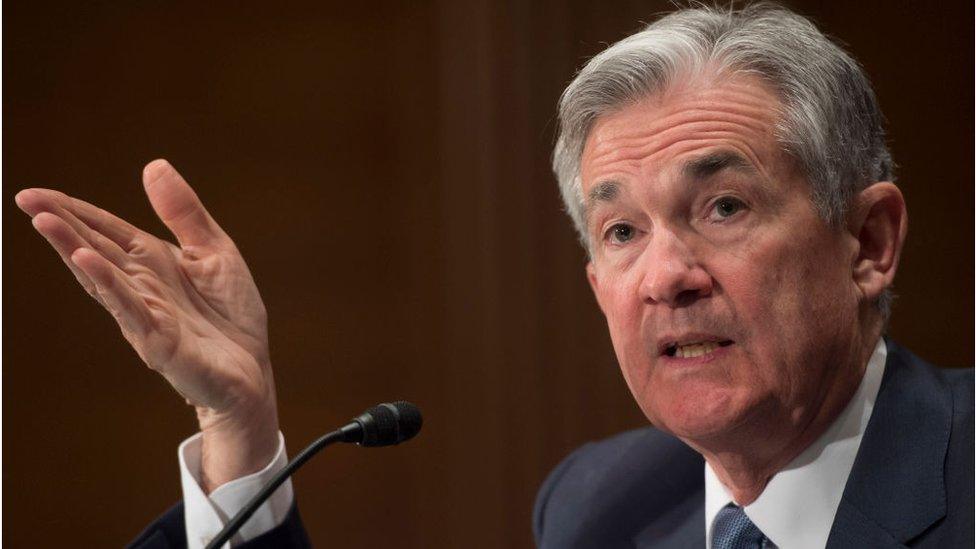Bank vote hints at interest rate rise in May
- Published
- comments

The Bank of England has left the door open to raise UK interest rates in May after making no change this month, holding them steady at 0.5%.
Two members of the Bank's nine-member Monetary Policy Committee - Ian McCafferty and Michael Saunders - backed an increase in rates to 0.75%.
That was a departure from the unanimous vote at the last MPC meeting in February.
In November, the Bank raised rates to 0.5%, the first increase for a decade.
The MPC said "ongoing tightening" was likely to be needed to return inflation back to the Bank's 2% target.
On Tuesday, the Office for National Statistics said consumer price inflation was 2.7% in February, down from 3% the previous month and the lowest figure since July 2017.
Kallum Pickering at Berenberg said the March minutes "give the nod to market pricing for a May hike".

Alan Clarke at Scotiabank said he was "more and more confident" that the MPC would raise rates in May.
"Thereafter we expect a rate hike in November, but it's not going to be plain sailing getting there," he added.
However, Samuel Tombs at Pantheon Macroeconomics argued that the committee members would wait until August to raise interest rates again.
The National Institute of Economic and Social Research (NIESR) reaffirmed its call for a 0.25 percentage point rise every six months to bring the rate to 2% in 2020-21.

Analysis: Kamal Ahmed, BBC economics editor
The MPC is treading a familiar path. First: signal an interest rate rise is coming by toughening up the language.
Bank governor Mark Carney said at the last MPC meeting in February that everyone should start preparing for more rapid interest rate increases than previously signalled.
Second: notice that the two hawks on the MPC have split from the more doveish tendency.
Ian McCafferty and Michael Saunders voted for a rate rise today, just as they did last year for three successive MPC meetings before they were joined by other members of the committee. Rates were finally raised in November to 0.5%.
Third: watch the market predict a "nailed on" rate rise for the next MPC meeting.
Most now believe that a rate rise at the next meeting in May is all but certain.
Just two points of caution. Inflation fell more rapidly than expected earlier this week, undermining claims that price rise pressure is a present risk.
Growth is fairly weak, and too sharp a yank on the interest rate lever could apply dampeners just when they are not needed.

Muted growth
Official figures released on Wednesday showed that average earnings rose by 2.6% in the three months to January - the fastest pace since 2015.
On Wednesday, the government announced a 6.5% pay rise for many NHS workers over the next three years.
Higher wages could make it harder for the Bank to see inflation fall closer to its 2% target.
Muted economic growth is another complication. Last month, the Bank forecast growth of 1.8% for this year and 2019 - well below the UK's historic average.
Thursday's MPC minutes said the UK economy would suffer a "temporary" hit from the recent cold weather, suggesting growth may slow to 0.3% in the first quarter, down from 0.4% for the last three months of 2017.
- Published2 August 2018

- Published8 February 2018

- Published20 March 2018

- Published21 March 2018
